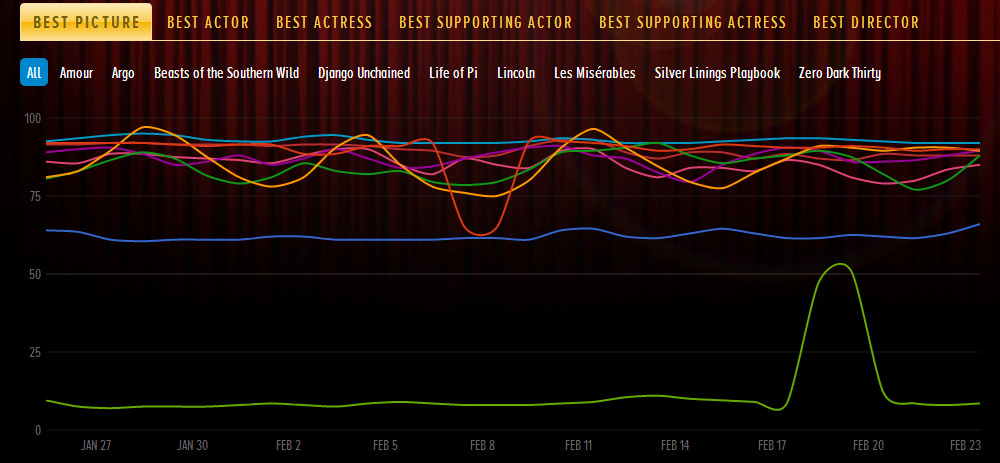
Did Twitter’s Twindex Succeed?
So, how did the Twindex do? Well, out of the six categories tracked, the Twindex predicted correctly only three winners. It correcting picked Ang Lee to win Best Director, Christopher Waltz to win Best Supporting Actor, and Daniel Day-Lewis to win Best Actor. But, where the Twindex predicted the incorrect winners is where the results get interesting.
Of the three wrongly predicted categories, two Twindexes were actually tracking the eventual winners correctly until the final days. Anne Hathaway’s win for Best Supporting Actress and Jennifer Lawrence’s win for Best Actress were both predicted for weeks by the Twindex until being upended by Sally Field and Quvenzhané Wallis, respectively, just days before the Oscars. It is uncertain what these swings can be attributed to, but it nevertheless provides an interesting study in how Oscar nominees are discussed on Twitter and whether or not Twitter conversation is a good measure of the Academy’s ultimate decision. Judging from this year’s Twindex results, it would seem that one should base predictions off of the nominee that historically sported the higher Twindex and should ignore last-second swings to the Twindex. In fact, the lesson is the same as when you are taking a multiple choice test: don’t second-guess yourself.

